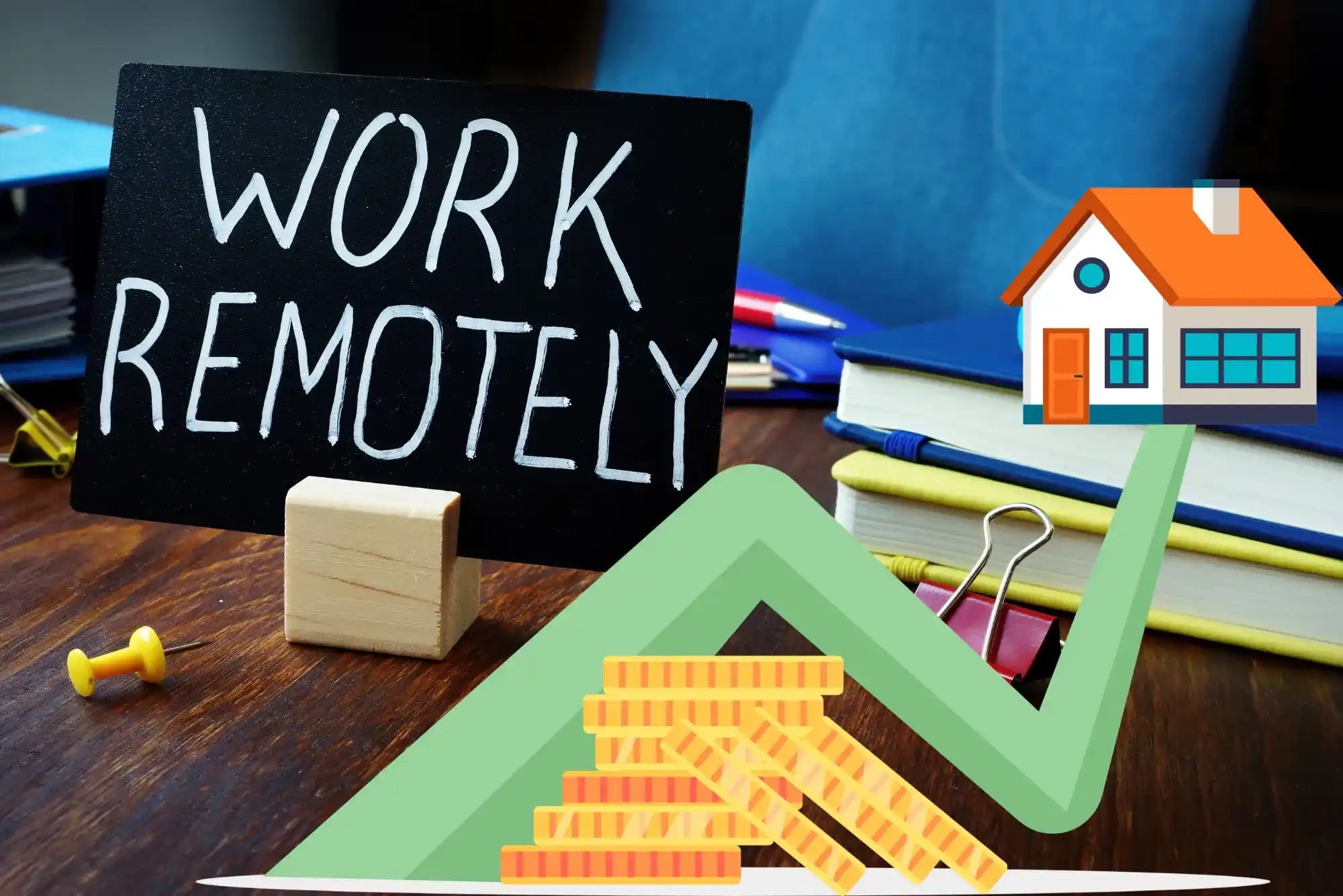The rise of remote work has significantly reshaped the real estate market. With more people working from home than ever before, the demand for residential properties has been impacted in ways that were not seen before the global shift towards flexible work arrangements. Whether you’re a homebuyer, seller, or investor, understanding how remote work influences property demand is crucial in making informed decisions in today’s market.
In this article, we will explore the impact of remote work on property demand, how it’s changing the types of properties people are interested in, and how financial tools like the HSBC Select credit card and the abdiaead swift code can help you navigate your property-related financial transactions during this shift.
How Remote Work is Shaping Property Demand
1. Increased Demand for Larger Homes
Before the shift to remote work, many people were willing to settle for smaller homes due to the need to commute to the office daily. However, as more individuals work from home, there has been an increased demand for larger homes. Buyers are looking for spaces that accommodate home offices, multiple bedrooms, and larger living areas that allow for a comfortable work-life balance.
Properties with extra rooms or open spaces for home offices are now in high demand. People are increasingly seeking homes that provide the flexibility to work from home without sacrificing comfort. As remote work becomes a permanent part of many people’s lives, the desire for more space will likely continue to drive demand for larger homes, especially in suburban or rural areas where property prices are typically lower.
2. Shifts in Location Preferences
With the need to commute no longer as pressing, people are also reassessing where they live. Remote work has opened up the possibility for individuals to move away from busy cities and into quieter, more affordable areas. Suburban and rural regions are seeing increased interest, as many workers can now live further from their employer’s physical office without the daily need to commute.
This has had a noticeable impact on property prices, particularly in urban centers where demand has leveled off or even decreased in some cases. As remote workers flock to more affordable locations, areas outside city centers are becoming hotspots for real estate, leading to rising prices in regions that were once considered less desirable.
HSBC Select Credit Card
As property demand shifts, so too does the way homebuyers and investors manage their finances. For those making large purchases related to remote work, such as home renovations, furniture, or office equipment, having financial flexibility is key. The HSBC Select credit card can offer an excellent solution.
The HSBC Select credit card comes with benefits such as cashback on purchases, rewards, and flexible repayment options. This can help you manage the additional expenses that come with setting up a home office or making improvements to your new living space, which are essential as you adapt to a remote work lifestyle. Whether you’re renovating or purchasing essential tools, using a credit card that rewards you for spending can provide valuable financial advantages.
3. Increased Focus on Outdoor Space
Another important trend driven by remote work is the increased demand for properties with outdoor spaces. As people spend more time at home, having a backyard, balcony, or patio has become a top priority for many buyers. These spaces provide an escape from the confines of the home and offer a place for relaxation, exercise, or even outdoor work.
Homes with large gardens, outdoor seating areas, or proximity to parks and green spaces are now highly sought after. This trend reflects the growing desire for a balanced lifestyle, where people can enjoy fresh air and nature without leaving their property. As a result, properties with these features are expected to see higher demand in the coming years.
4. Commercial Properties Face Decreased Demand
While residential property demand has surged due to remote work, commercial real estate, especially office spaces, has seen a decline in demand. Many businesses are reevaluating their need for office spaces, as remote work has proven to be effective for a significant number of employees. Companies are downsizing their office footprints or opting for flexible office arrangements.
This shift has resulted in a reduction in demand for commercial office space, especially in prime city locations. As more businesses embrace remote work or hybrid models, the commercial real estate market may need to adapt to the new demand for flexible workspaces or smaller offices that accommodate fewer employees.
Abdiaead Swift Code
For those involved in cross-border property transactions or sending international payments for property-related expenses, understanding the abdiaead swift code is essential. Whether you’re making payments for a property in a different country or paying for home-related services from abroad, having the correct swift code ensures that your international money transfers are processed correctly.
The abdiaead swift code helps streamline transactions, reducing the risk of delays or errors when sending funds across borders. Knowing how to use this code properly can make managing your remote work-related finances smoother and more efficient, especially if you’re buying property in an area outside your home country.
How Remote Work Affects Property Demand in 2025
Looking ahead to 2025, it’s clear that remote work will continue to shape property demand. The trends we’ve discussed, such as the increased desire for larger homes, outdoor spaces, and a shift toward suburban and rural areas, are expected to persist. However, several other factors will also come into play in the next few years.
1. Hybrid Work Models
As hybrid work models become more common, where employees split their time between working from home and in the office, property demand may evolve further. Buyers may look for homes that provide both a comfortable work environment and easy access to their office for in-person meetings. Proximity to transportation hubs or business districts could still be important, but the focus will likely shift toward homes that can support a flexible work routine.
2. Increased Investment in Home Improvements
As remote work becomes more entrenched, people will continue to invest in home improvements to make their homes more comfortable and functional. From building home offices to upgrading kitchens and living areas, buyers are likely to seek homes that offer the flexibility to accommodate both work and leisure.
This trend is likely to continue driving demand for homes with extra space, modern amenities, and adaptable layouts.
Conclusion
Remote work has dramatically changed the real estate landscape, influencing the demand for property in several ways. As more people embrace flexible work-from-home arrangements, they are prioritizing larger homes, outdoor spaces, and locations that offer a better work-life balance. This shift has had a significant impact on residential real estate, while also causing a decline in demand for commercial properties.
Understanding these trends can help you make informed decisions when buying or selling property, especially as the market continues to evolve in 2025. Financial tools like the HSBC Select credit card and abdiaead swift code can provide the financial flexibility and support needed to manage property-related expenses, whether you’re purchasing, renovating, or handling international transactions.
By staying informed about market trends and utilizing the right financial tools, you can successfully navigate the changing real estate market and make decisions that align with your lifestyle and goals.




